| If you can't view the email, please click here. |
|
|
|
This issue of TPQ comes to you at the end of a tumultuous summer for Turkey and the region. The June 7 parliamentary elections seemed to herald the beginning of a new era; the Peoples’ Democratic Party (HDP) passed the 10 percent election threshold and the ruling Justice and Development Party (AKP) lost its absolute majority, forcing it to engage in coalition talks for the first time in its 13-year rule.
With the breakdown of coalition talks, widely attributed to the behind-the-scenes interference of President Erdoğan, repeat elections are slated for November 1st and political and economic uncertainty abound.
This year’s Summer issue probes the underlying economic dimensions of these ongoing events to provide more insight into significant changes taking place in the region and their wider implications for sustainability, governance, and human rights. These issues are particularly relevant in light of Turkey’s chairmanship of the G20 summit this Fall.
|
|
Monaco: A Distinctive, Enduring Model
Michel Roger 
“When a country aims to be a 'model,' its collective organization, in the sense of public services, must strive to be exemplary. I have the honor of managing a very able administration, capable of modernizing while introducing ambitious public policies that are both economical in the use of state funds and efficient in serving the citizenry.”
“The various social measures existing in Monaco – notably assistance to the elderly and aid to families – are especially favorable. Similarly, the state has made considerable efforts to provide affordable housing for the Monegasques, despite very high rents in the private sector.”
“Through its status as a sovereign, independent state, the Principality enjoys full international recognition and a special place in the concert of nations. Of course, it is characterized by its neutrality, which implies discretion and humility.”
|
|
|
Interview with Amos Hochstein
Energy Security, Russia, & the LNG Boom 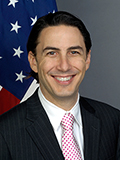
“Russia can and should remain a significant supplier of gas to Europe, but it is important that it play by the commercial rules of the game. For European countries, and others, energy security is best enhanced through diversification of energy types, of energy sources, and energy supply routes.”
“The proposal I have advocated for aims to ensure that infrastructure is in place to support diversification for all countries in Europe to have the ability to choose from multiple suppliers, and for suppliers – from Azerbaijan to Israel, from Qatar to Norway, and from Iraq to the US – to have equal access to European markets.”
“The US is in the middle of a historic shift from the largest LNG importer to a significant leading exporter. This has been achieved in a very short time frame.”
|
|
|
Advanced Manufacturing as the Key to Sustainability
İhsan Necipoğlu 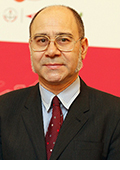
“Advanced manufacturing – rapidly adopting and using innovation and cutting-edge technology to produce higher value, specialized processes, and products – is a main pillar of successful societal blueprints, as it improves the country’s economic offerings and competitiveness, leading to a healthier economy.”
“Turkey’s real strength and long-term potential lies in its population. In relation to members of the European Union (EU), Turkey ranks fourth in the size of its labor force.”
“Developing an advanced manufacturing base grounded in existing advantages will help pull [Turkey] out of a middle-income trap – with slowing growth putting the country’s ambition to join the ranks of high-income countries at risk.”
|
|
|
Hacking the Wealth of Nations: Managing Markets Amid Malware
David Fidler 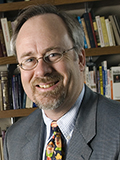
“States are trying to balance the liberalization of digital commerce with the protection of national security and to cooperate on strengthening national cyber defenses. The need to calibrate economic and security interests is familiar in global political economy, but how well governments accomplish this task concerning cybersecurity remains to be seen.”
“Cybersecurity problems affect efforts to advance trade and investment liberalization, including in negotiations on the Trans-Pacific Partnership (TPP) and Trans-Atlantic Trade and Investment Partnership (TTIP) agreements.”
“A thread running through responses to cybersecurity threats is the dominance of US-based companies in digital commerce. (…) One consequence of the Snowden disclosures was global blowback against US tech companies for being perceived as complicit with US surveillance and espionage.”
|
|
|
The US, the EU, and Turkey: Now What?
Nate Schenkkan & David Kramer 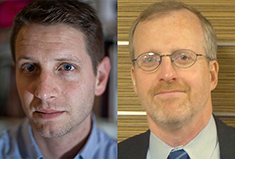
“As president, Erdogan has run the country as if he is still the prime minister, only now with the president’s powers as well. Most critically, in March he condemned the so-called ‘Dolmabahçe Agreement,’ when the government he himself appointed publicly announced new steps in the peace process in a joint appearance with the HDP.”
"In the immediate-term, the US must not trade Turkish support for the anti-ISIL bombing campaign at the cost of a peace agreement in Turkey. In the medium-term, it must recognize the tremendous risk in Erdoğan’s determination to remain in power at all costs, even to the point of rejecting pluralist governance and embracing the Turkish nationalism he once spurned."
|
|
|
Cleaning Up World Soccer Governance
James M. Dorsey 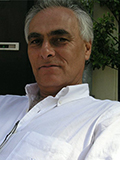
“FIFA doles out millions of dollars annually to member associations, particularly in developing nations that are dependent on those funds to build badly needed soccer infrastructure such as stadiums and administrative offices and to develop their country’s soccer prowess. FIFA President Sepp Blatter and his administrators have at times been willing to be less than stringent in ensuring that donated funds were spent correctly.”
“A Qatari World Cup that produces change would be a far more valuable outcome than penalization, which would produce anger and frustration in a Muslim world that feels it is being discriminated against and stereotyped on multiple levels. Moreover, depriving Qatar of its hosting rights is not what will curb corruption; structural reform of soccer governance will.”
|
|
|
A Holistic Model to Empower Humanity
D. Hakan Habip 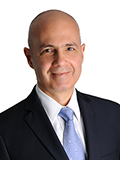
“On 20 July 2015, 32 youngsters perished in a suicide bombing attack in Suruç, Turkey. In Suruç, those who perpetrated the suffering were those who would like to enslave humanity, and those who suffered were those who would like to empower humanity. The common tool of empowerment is showing empathy and being equidistant to any identity. The main tool of enslavement is fear.”
“The goals of Bilim Kahramanları Derneği (BKD – Science Heroes Association) are: to render science the focal point of Turkish society, to attract children and adolescents to fundamental sciences at an early age, and to motivate young scientists. Cumulatively, in 11 seasons, First Lego League (FLL) in Turkey has reached 9,000 young students from 35 cities.”
|
|
|
Coal’s Not Cool: Energy and Turkey’s Reputation
Jörn Richert 
“Turkey ranks first amongst European countries with regard to hydropower, wind, and geothermal potential and second with regard to solar power potential. While hydropower capacity is used most extensively, there is ample room for improvement regarding all other forms of renewable energy. Taken together, more than 90 percent of Turkey’s renewable energy potential remains untapped.”
“Turkey’s aspiration to become an important player on the international stage would be compromised by its strategy to secure affordable energy for its economy at home. Should the latter be provided by a significant extension of coal power plant capacity, this would significantly reduce the country’s credibility as a sustainable economy and a forward-looking political actor in the future.”
|
|
|
Turkey’s Visa Policy: A Migration-Mobility Nexus
Meral Açıkgöz 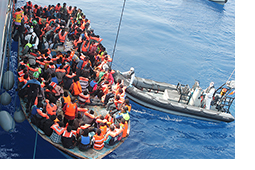
“Turkey’s liberal visa policy reached its peak in the mid-2000s, mainly due to a process spearheaded by the MFA and driven by Turkey’s so called new foreign policy and its re-orientation in global politics. This was done in particular with the explicit aim of intensifying trade and investment opportunities and the implicit aim of pledging to take on a greater role in regional and international affairs with growing attention to non-Western powers.”
“The signing of the readmission agreement with the EU in December 2013 in parallel with the launching of a visa liberalization process has breathed new life into bilateral relations, as well as put pressure on Turkey to revisit some of its more liberal visa policies.”
|
|
|
Can Turkey Foster Regional Stability Under UNCLOS?
Kubilay Falkenberg 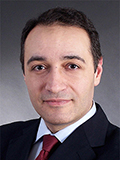
“UNCLOS contains important general definitions and specific definitions on functional sea space, as well as allocating rights and duties to states and stakeholders, particularly with regard to use of maritime recourses. Furthermore it contains peaceful dispute-resolution mechanisms, which are entitled to represent and act on behalf of all mankind when regulating or licensing ocean seabed mining.”
“Accession to UNCLOS should be considered in order to increase Turkey’s international reputation and its solution-providing capacity. Turkey would gain substantially more clout when speaking about issues relating to the Aegean Sea, East Mediterranean, and Cyprus if it were a signatory of UNCLOS.”
|
|
|
How Far is Turkey from a Mearsheimerian Tragedy?
Markos Troulis 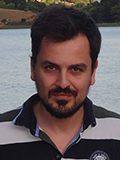
“John Mearsheimer’s offensive realism is identified with maximization of interests met by power maximization as a prerequisite for the survival of state sovereignty. As a consequence, the foremost aim of grand strategy is regional hegemony, as well as relative economic growth to support military empowerment, preponderance in the area of ground forces, and persistent efforts for nuclear superiority.”
“The deterioration of Turkey’s relations with major global powers capable of projecting power in the greater Middle East, and the rise of new threats, suggest that the country is facing major dangers without adequate capabilities. In other words, Turkey confronts a dangerous synthesis of an unstable regional environment and a limitation of the great powers’ interest in the Middle East.”
|
|
|
Carbon Emissions Development in China
Maosheng Duan, Qian Wu, & Rıza Kadılar 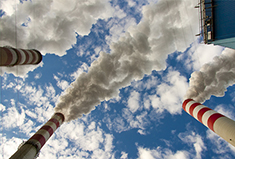
“Carbon-trading systems have been taking shape since 2013 in seven Chinese regions. Within the next three years, the pilots will continue to operate as small-scale functioning markets, while the government develops the necessary infrastructure that would lead to a scaled-up national carbon market by 2020.”
“With rapidly-growing electricity consumption and incentives offered for fossil fuel electricity generation, CO2 emissions from the electricity sector in Turkey have tripled over the last two decades. It is critical that climate policy be integrated into energy policy, which has focused so far on energy security and resources. Developing an emission trading system (ETS) in Turkey will create incentives for deploying carbon-reduction technologies and business models.”
|
|
|
Book Review by Varun Piplani
Thieves of State 
“The book makes a strong critique of the passive, and sometimes even active, role that the US played in promoting acute corruption in Afghanistan. Chayes provides an absorbing (and dismaying) account of the various points in time at which US officials could have implemented stronger anticorruption measures and chose not to do so.”
“Chayes classifies all modern cases of corruption she discusses (Afghanistan, Egypt, Tunisia, Uzbekistan, and Nigeria) as kleptocracies. No cases are discussed that are not kleptocracies. The author then expands the boundaries of what constitutes a kleptocracy by adding 16th-century Netherlands, 17th-century Britain, the Catholic Church, and even Ireland, Iceland, and the US (specifically in regards to financial corruption) to her list of kleptocracies. This begs the question: what is not a kleptocratic form of corruption?”
|
|
|
TPQ EVENT ANALYSIS
Turkey’s Social Media Landscape 
“On 19 March 2015, TPQ organized a panel discussion on Turkey’s changing social media landscape to better understand the reasons and justifications behind government restrictions of social media usage. The panel featured Kadri Gürsel, columnist for Al Monitor, Gökhan Ahi, information law specialist at Ahi Law Office, and Aslı Tunç, Professor of Communication at Bilgi University. CNN Türk’s senior editor Ahu Özyurt moderated the panel.”
“Kadri Gürsel argued that the restrictions on media freedom in Turkey have all but destroyed Turkish journalism in both law and practice. In this sense, the media as the ‘fourth power’ is not able to carry out its intended purpose: encouraging citizens to make responsible, informed choices rather than acting out of ignorance or misinformation, and serving as a ‘watchdog’ over elected representatives to ensure they uphold their oaths of office and carry out the wishes of those who elected them.”
|
|
|
Have a counter-argument to one of the authors’ views?
Share it on TPQ’s Debates section. For guidelines click here. |
|
|
The Premium Corporate Sponsor of this Issue
 |
|
|
Thanks to our partners |
 |
 |
|
|
 |
Address: Kadir Has Üniversitesi Cibali Kampüsü Sosyal Sorumluluk Binası ( Beyaz Ev )
Küçük Mustafa Paşa Mah. Seferikoz Sok. No:14 Kat.1 Fatih- İstanbul
Phone: +90 212 621 4442 - +90 212 621 9258 Fax: +90 212 531 8718 info@turkishpolicy.com
Click to unsubscribe |
|
|
